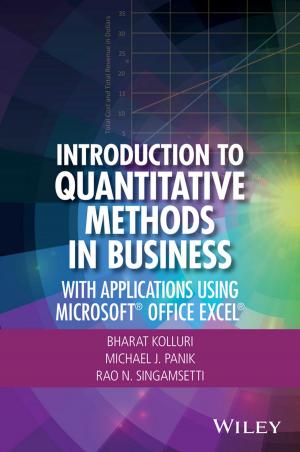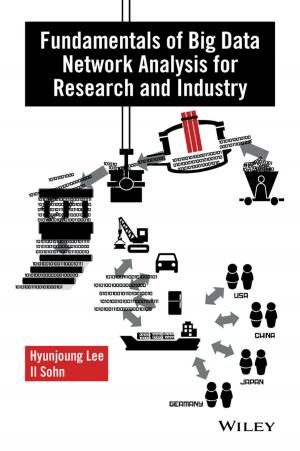Organic Synthesis
Strategy and Control
Nonfiction, Science & Nature, Science, Chemistry, Physical & Theoretical| Author: | Paul Wyatt, Stuart Warren | ISBN: | 9781118681442 |
| Publisher: | Wiley | Publication: | May 20, 2013 |
| Imprint: | Wiley | Language: | English |
| Author: | Paul Wyatt, Stuart Warren |
| ISBN: | 9781118681442 |
| Publisher: | Wiley |
| Publication: | May 20, 2013 |
| Imprint: | Wiley |
| Language: | English |
Organic Synthesis: Strategy and Control is the long-awaited sequel to Stuart Warren's bestseller Organic Synthesis: The Disconnection Approach, which looked at the planning behind the synthesis of compounds. This unique book now provides a comprehensive, practical account of the key concepts involved in synthesising compounds and focuses on putting the planning into practice.
The two themes of the book are strategy and control: solving problems either by finding an alternative strategy or by controlling any established strategy to make it work. The book is divided into five sections that deal with selectivity, carbon-carbon single bonds, carbon-carbon double bonds, stereochemistry and functional group strategy.
* A comprehensive, practical account of the key concepts involved in synthesising compounds
* Takes a mechanistic approach, which explains reactions and gives guidelines on how reactions might behave in different situations
* Focuses on reactions that really work rather than those with limited application
* Contains extensive, up-to-date references in each chapter
Students and professional chemists familiar with Organic Synthesis: The Disconnection Approach will enjoy the leap into a book designed for chemists at the coalface of organic synthesis.
Organic Synthesis: Strategy and Control is the long-awaited sequel to Stuart Warren's bestseller Organic Synthesis: The Disconnection Approach, which looked at the planning behind the synthesis of compounds. This unique book now provides a comprehensive, practical account of the key concepts involved in synthesising compounds and focuses on putting the planning into practice.
The two themes of the book are strategy and control: solving problems either by finding an alternative strategy or by controlling any established strategy to make it work. The book is divided into five sections that deal with selectivity, carbon-carbon single bonds, carbon-carbon double bonds, stereochemistry and functional group strategy.
* A comprehensive, practical account of the key concepts involved in synthesising compounds
* Takes a mechanistic approach, which explains reactions and gives guidelines on how reactions might behave in different situations
* Focuses on reactions that really work rather than those with limited application
* Contains extensive, up-to-date references in each chapter
Students and professional chemists familiar with Organic Synthesis: The Disconnection Approach will enjoy the leap into a book designed for chemists at the coalface of organic synthesis.















